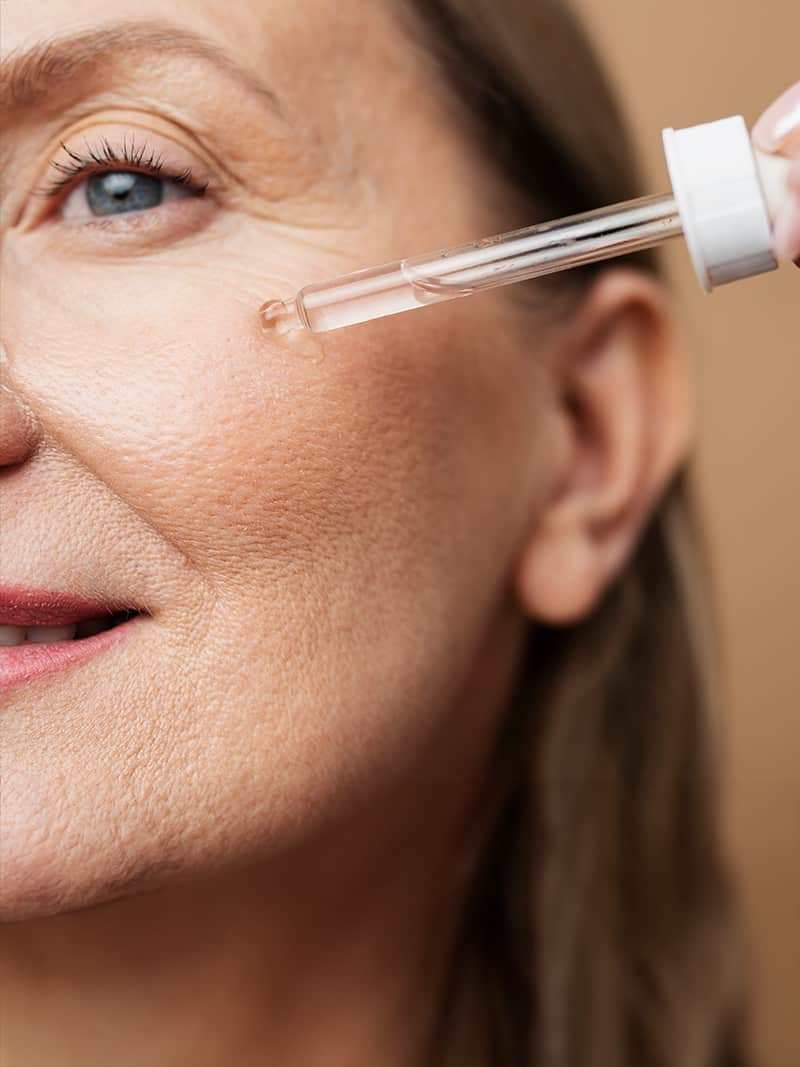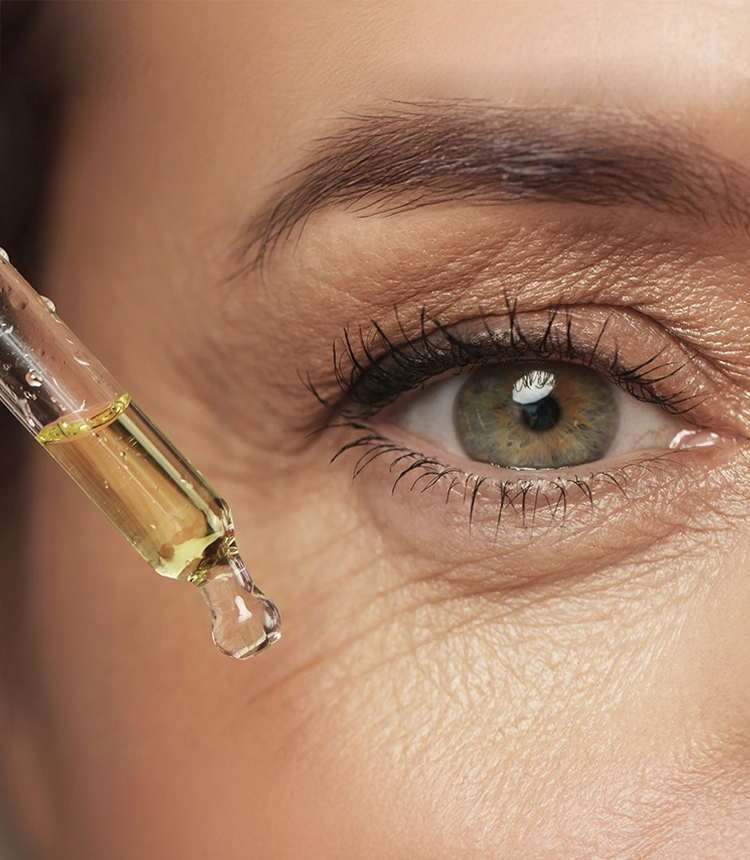How the skin changes and what it needs according to age
We develop formulas that treat the signs of ageing at their source
Bella Aurora develops its anti-ageing treatments and formulas inspired by the skin's natural mechanisms, using them to prevent skin ageing. How?


Repairing the skin from stress and pollution
Stress is a common companion in modern life and its effects on the skin are evident. When we are tired and nervous, the body releases hormones like cortisol, which can trigger a series of negative reactions in the skin. Blood flow to the skin decreases, meaning that less oxygen and essential nutrients are delivered to the skin. As a result, it can become dull and prone to imperfections and premature ageing.
We are constantly exposed to environmental pollution, and the skin is one of the most affected areas. Fine particles and pollution in the air can accumulate on the skin's surface, clogging pores and causing inflammation. Additionally, pollution can produce free radicals, unstable molecules that damage skin cells and result in a loss of elasticity and the appearance of wrinkles and skin spots.
The skin's circadian clock is an internal system that regulates biological processes and their functioning throughout the day and night. This circadian clock influences cell renewal, collagen production and other processes that are vital for the skin's health and appearance. Stress negatively affects and can damage the skin's circadian clock, leading to a reduction in cell regeneration and the skin having less capacity to repair itself.
Deciphering the power of epigenetics
Skin epigenetics explains how certain genes can be turned on or off depending on the environment and our habits, directly affecting the appearance and health of the skin. In short, facial skin epigenetics is about how our actions and environment can influence our appearance and skin ageing.
In the skin, epigenetics plays an essential role in the ageing process and in its response to external factors such as sun exposure and the environment. These epigenetic modifications can alter genes related to the production of collagen, elastin and other proteins that are essential for the skin's health and appearance.
Cosmetic products and treatments can positively influence the skin's epigenetic modifications. There are cosmetics that work by activating the genes responsible for collagen and elastin production, while deactivating the genes related to premature ageing.
Epigenetics provides us with a new approach to addressing skin ageing and keeping the skin healthy and radiant over time.


THEY WILL BE YOUR ESSENTIALS!














